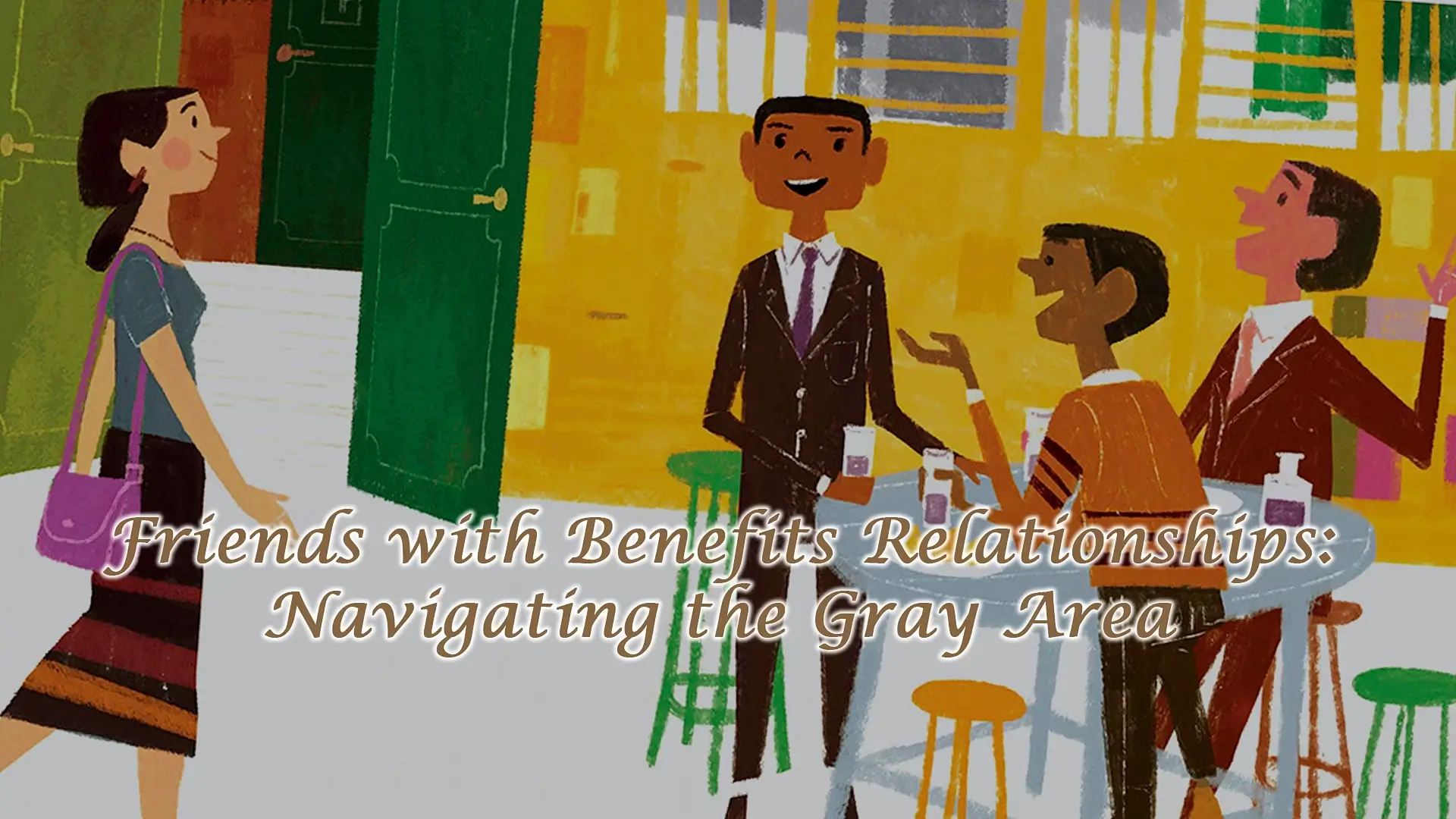Friends with benefits relationships are becoming increasingly popular in today’s society. This type of relationship offers the intimacy and companionship of a romantic relationship, without the formal commitments and responsibilities that are usually associated with them. However, friends-with-benefits (FWB) relationships are not without their complexities and potential pitfalls. In this article, we will explore the dynamics of FWB relationships, the benefits and challenges they bring, and ways to develop them successfully.
Understanding Friends with Benefits Relationships
At its core, a friends with benefits relationships is two friends who engage in a sexual relationship without the commitment of a traditional romantic partnership. These relationships are often seen as a way to fulfill physical and emotional needs without the pressures of a traditional relationship.
The Appeal of Friends with Benefits Relationships
Flexibility & Freedom
One of the main attractions of a friends with benefits relationships is the flexibility it offers. People can enjoy the benefits of a sexual relationship without having to make significant lifestyle changes or sacrifices. This can be especially appealing to those who are focused on their careers, personal growth, or other priorities that can make commitment relationships challenging.
Emotional & Physical Intimacy
FWB relationships provide the opportunity for emotional and physical intimacy without the need for romantic commitment. It helps satisfy the human desire for intimacy and companionship, which is essential for mental and emotional health.
Low expectations
These relationships often come with lower expectations or no expectations at all, compared to traditional relationships. There is no need to conform to societal standards of an ideal relationship, allowing both parties to enjoy each other’s company, whenever they want, without the stress of long-term planning or maintaining the relationship.
Challenges of Friends with Benefits Relationships
Emotional Complications
One of the most significant risks in a friends with benefits relationships is the possibility of emotional complications. Despite the initial agreement that things should be casual, feelings can develop over time. When one person begins to want more than what the relationship was originally set up for, it can lead to confusion, frustration, and heartache.
Jealousy & Insecurity
Without clear boundaries, jealousy and insecurity can quickly arise between the partners of a casual relationship. Even if both parties agree to maintain a relaxed relationship, your FWB partner’s encounter with someone else can trigger unexpected emotions. This can lead to conflicts and misunderstandings that can deteriorate or even end the friendship.
Communication Breakdown
Effective communication is important in any relationship, but it is especially important in a friends-with-benefits relationship. Misunderstandings or lack of communication about boundaries, expectations, and feelings, can lead to misunderstandings and strong resentments. Making sure both parties are on the same page is critical to maintaining a healthy FWB relationship.

Navigating Friends with Benefits Relationships Successfully
Set Clear Boundaries
Setting clear boundaries from the beginning is very important. Discuss what each person wants from the relationship and what is not acceptable to them. This includes talking about exclusivity, emotional involvement, and how to behave in relationships with others.
Maintain Open Communication
Regular and open communication is very important to maintaining a healthy FWB relationship. Check in with each other periodically to make sure both parties are still comfortable with the relationship. Being honest about your feelings and any changes that may occur will only improve future relationships.
Avoid Assumptions
Assumptions can be disastrous in a FWB relationship. Never assume that the other person feels the same way you do about any aspect of the relationship. Always communicate your thoughts and ask about theirs to avoid misunderstandings.
Know When to Walk Away
If a FWB relationship is starting to be more stressful than enjoyable, it may be time to end it. Whether it’s developing feelings, jealousy, or any other reason, knowing when to stop and walk away is important. Ending the relationship peacefully will help preserve the friendship and prevent further emotional turmoil.
Friends-Beneficiary Relationships in Popular Culture
The relationship between friends and benefits has become prevalent in contemporary media, from movies such as Friends with Benefits starring Justin Timberlake and Mila Kunis to TV series such as Friends, where Ross and Rachel utilize a similar dynamic. These images often romanticize relationships, highlighting both the fun and the complications that can arise in such relationships.
Psychological Perspective
From a psychological perspective, friends-with-benefits relationships can offer a unique insight into human behavior and relationships. They challenge traditional notions of romantic partnerships and offer an alternative way of meeting emotional and physical needs. However, they also emphasize the importance of communication, boundaries, and self-reflection in any relationship dynamic.
Summing Up
Friends with benefits relationships can be rewarding for those who enter into them with clear intentions, mutual respect, and open communication. They offer a combination of friendship and intimacy without the demands of a traditional romantic relationship. However, they also come with potential challenges, including emotional complications and the need for clear boundaries. By understanding these dynamics and navigating them thoughtfully, people can enjoy the benefits of these relationships while minimizing the risks.
Whether you are considering or are currently in a friends with benefits relationships, remember that the key to a successful friends with benefits relationships is mutual understanding, respect, and constant communication. If you approach this relationship with care and consideration, you can enjoy a fulfilling and satisfying connection without the pressures of a conventional romantic relationship.




I think a lot of people underestimate the importance of respect and honesty in friends with benefits relationships.
I appreciate the balanced perspective here. Friends with benefits relationships are often portrayed as easy and carefree in media, but this article highlights both the benefits and potential pitfalls.
This article really resonates with me! I’ve had a friends with benefits relationship before, and communication truly is key.
I found the section on the impact on existing friendships quite interesting.
The tips on setting expectations and prioritizing mutual consent are essential for making these relationships work
This article really hits the nail on the head when it comes to friends with benefits relationships!
A very insightful read on the complexities of friends with benefits relationships. I can relate to some of the challenges mentioned, particularly emotional attachment and boundary issues.